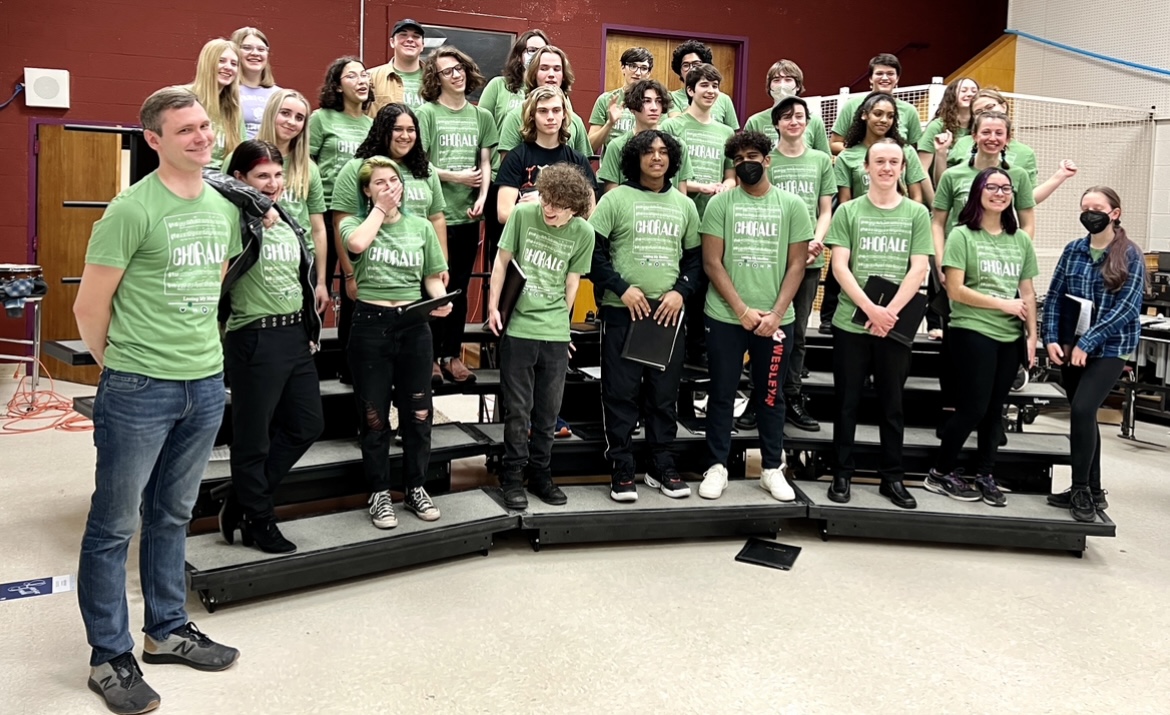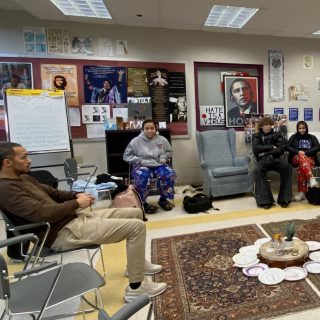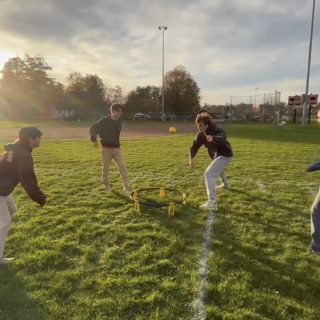Music teacher bemoans block schedule, calls it ‘devastating’

For seniors at ARHS, the block schedule (in which students take only one semester-long class in each subject for full credit) is all they have known in high school.
Students often praise the reduced homework load that comes with taking just four longer classes at a time and they often cite an ability to focus better on their classes and the work they contain than they would if they had to juggle many more subjects at a time.
However, a drawback of the block is interrupted instruction. In almost every subject, but especially in math, languages, and music, students struggle to pick up where they left off over six months before. Students say that they also have less time to learn new concepts and inevitably spend more time relearning old concepts or shaking the dust off.
I spoke to music teacher Todd Fruth about the specific challenges of the block schedule on music.
Any musician will tell you that consistent practice is essential to making progress while learning any type of music. For this reason, Fruth said that for “medium to smaller schools like ours, the impact [of the block] is devastating.”
“Seeing students for essentially only half the year means they go seven months without regular contact time,” he said. “It means that skills atrophy and the sense of community–so integral to music ensembles–is stifled.”
This issue is especially felt with the ARHS singing ensembles because, unlike orchestra and band, they have performances all year round, noted Fruth. Though students meet once a week in flex block in one of the semesters, it can be difficult to find time to learn new music, and most of the time that they do have is spent on review.
Fruth mentioned that the block schedule could be “more favorable for larger schools because they can afford to cater to the most devoted students who will take music for two of their eight blocks year round.” But at ARHS, he said, there aren’t enough students who would opt for something like that.
Fruth said that, unfortunately, he believes the quality of our performance suffers during the semester that students aren’t meeting as much.
Seeing students for essentially only half the year means they go seven months without regular contact time. It means that skills atrophy and the sense of community, so integral to music ensembles, is stifled.
TODD FRUTH
“We go from meeting 375 minutes a week down to 40 minutes a week. We don’t have as much time to practice leading up to concerts, which usually leads to more nervous singing at the performance,” he said. “We also move much slower. At most, we’ll only be able to learn two or three pieces that semester.”
Instead, he said that time is spent “maintaining skills and community rather than making forward progress.”
Another issue with the block schedule is that while classes are much longer, it still leads to reduced meeting time during the year as a whole. This is not exclusive to music. Fruth said that this affects the amount of music students in Chorale can learn. “Each ensemble meets about 20 percent less often than we did pre-COVID. There’s also something to be said for the shorter time block in terms of increasing the efficiency/productivity of each rehearsal.”
Here he brought up another issue; “it is considerably more difficult to focus on one thing for 80 minutes straight than it is for 50, and this leads to even less productivity during the time that we meet.”
When asked if there are any upsides to the block schedule for music, Mr. Fruth said, “We are still able to accomplish a lot in the semester that the ensembles are meeting.”
President of the band, ARHS senior Soren Heim, had some additional critiques of the block schedule. He said that as a tuba player, his instrument is so heavy that it’s hard to take it back and forth during the semester they only meet once a week in Flex Block, so he often neglects to bring it home and practice.
However, he said that ”band takes a while to get their instruments together and warm up, so having a longer class period does allow more of the time that they do have to be used efficiently.”
Like Fruth, he agreed that people are ‘less focused during the 75-minute periods” overall.
Fruth ended his interview with a story from last year’s graduation, for which singers had limited time to practice and not enough time to learn all the music.
“Watching several Hurricane Singers mouth the words during graduation broke my heart,” he said.














